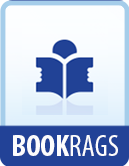By avoiding the prolixity which marks the speeches and the descriptions in Homer, I have gained a rapidity to the narration which I hope will make it more attractive, and give it more the air of a romance, to young readers; though I am sensible that, by the curtailment, I have sacrificed in many places the manners to the passion, the subordinate characteristics to the essential interests of the story. The attempt is not to be considered as seeking a comparison with any of the direct translations of the “Odyssey,” either in prose or verse; though if I were to state the obligations which I have had to one obsolete version, I should run the hazard of depriving myself of the very slender degree of reputation which I could hope to acquire from a trifle like the present undertaking.
If Chapman’s translation of Homer was “obsolete” in 1808, it was yet to be restored to the favour of readers, thanks to the loving homage of Lamb and Keats. “Chapman is divine,” wrote the author of the “Adventures of Ulysses” to a friend, “and my abridgement has not quite emptied him of his divinity.” In his story Lamb shows how he had recognized the moral value of the story of Ulysses, of “a brave man struggling with adversity,” but wisely leaves that moral to be insensibly impressed upon the reader, for he not only refrained from formulating a definite “moral” in such a case, but has explicitly recorded his repugnance from the method.
VERSES
In “Poetry for Children” we have again a work for which brother and sister were jointly responsible, and again—though we cannot exactly allot the parts—Charles, as we learn from his letters, wrote but about one third of the whole. Three years after publication the two small volumes in which this work had been issued were out of print, though a number of the pieces were included by the publisher in a “Poetry Book” compilation. In 1827 Lamb wanted a copy and could not get it, indeed the little work had disappeared in the most complete fashion, and another half century was to pass before a copy was to be recovered, and then it came from Australia, closely followed by one of an American edition, “pirated” in 1812. It is strange that Charles and Mary Lamb, “an old bachelor and an old maid,” as he put it, should have been so successful as caterers for children. That they were successful there is no doubt, and there is no reason why this “Poetry for Children” of theirs should not—now happily recovered in its entirety—go on pleasing and influencing many generations of young readers; that they do please the little ones of to-day I have readily proved. The verses are on the simplest themes, set forth in varied metres, but chiefly such metres as children can most readily remember, and though they are for the most part didactic, they are didactic in a way which the child does not resent. There is no telling a tale and then trying to enforce a moral from its consideration, but the moral is a natural part of the whole, and doubtless has its healthy effect.




